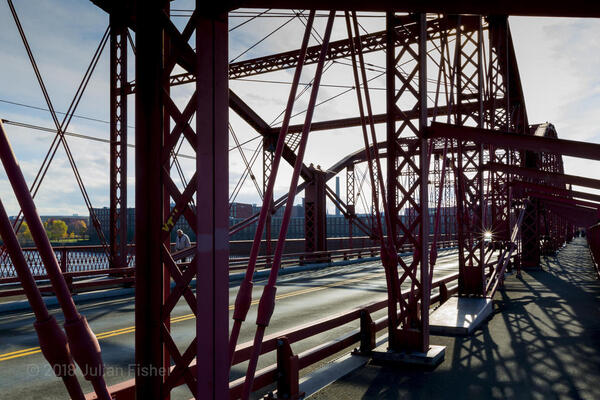Trapped in the Middle:
The Effect of Income Inequality on the Middle Class in America

Our country is based on the idea of the middle class as the foundation of a strong and stable American democracy. Yet the costs of being in the middle class have increased steadily over the past three decades, while incomes have remained essentially flat. We now work multiple jobs and longer hours. We juggle the demands of housing, transportation, education, and healthcare, modifying both life and lifestyle to adapt to these new conditions and stresses. How can a photographer make all this visible?
There is a long tradition in this country of photographers putting a face to a problem in an effort to improve the situation through discussion, action, and legislation. This has occurred during every stage of American history, since the birth of photography, from the time of the Civil War to the Gilded Age, the Depression, civil rights marches and Vietnam War protests. Among the most eloquent of these photographer-practitioners was my teacher, Walker Evans, with his studies of sharecroppers in the American South in Let Us Now Praise Famous Men.
What I found most challenging in photographing the middle class in our present state of distress is that typical photographs in our living rooms or workplaces do not tell a suggestive enough story of the difficulties we all increasingly face. The challenge for me was to figure out a scene or setting that represents what we are dealing with and the adaptations we make to keep things on an even keel. These are not face-to-the-camera pictures but rather metaphorical photographs, each raising a larger issue or set of issues that confront the 85% of Americans who are in the broadly defined middle class as we tread water ever faster to retain our places in society.
Pictures can be more powerful than words in describing how American society is changing. My hope is that the pictures and graphics in this exhibit will promote more public discussion about the causes and costs and perhaps even ways of addressing these issues.
Julian Fisher